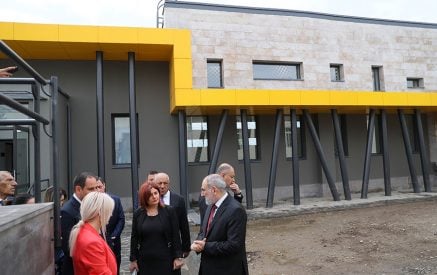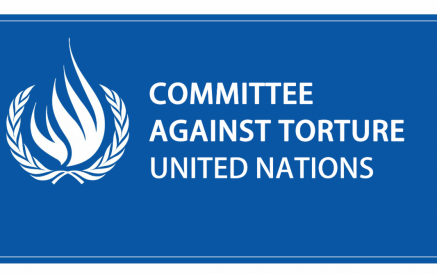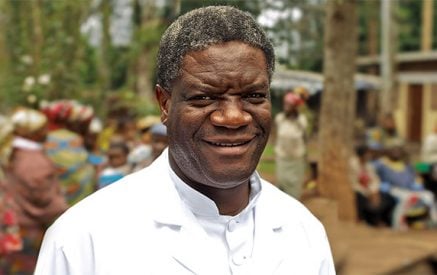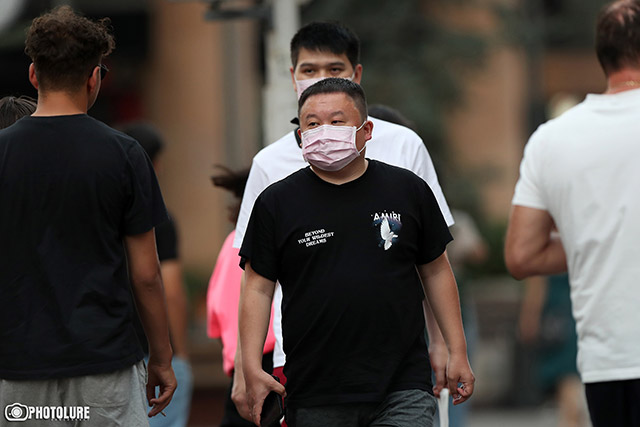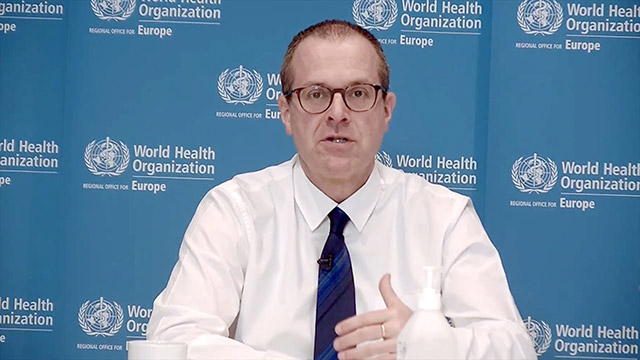WHO/Europe calls for a more humane approach and for Member States to use alternatives to immigration detention
A new report by the WHO Regional Office for Europe finds that immigration detention can have a severe impact on migrants’ health, especially mental health, during and after release from detention. International law clearly states that immigration detention should only be used as a last resort, and never for children, yet immigration detention remains widely practised across the WHO European Region.
Dr Hans Henri P. Kluge, Regional Director for the WHO European Region, says: “My vision of ‘leave no one behind’ applies to everyone, including refugees and migrants because the right to health must be protected for all, regardless of status. Over the last few years immigration detention has increasingly been used as a tool to manage migration flows in the WHO European Region. To protect the health of refugees and migrants, alternatives to detention should always be prioritized over detention measures, which can be akin to prison. Evidence suggests migrants in detention have the same or worse mental health outcomes as people living in prison.”
Deteriorating mental health
Read also
Findings show that the environment in immigration detention can cause a decline in the mental health of migrants. The longer migrants are detained, the worse the effects on their mental health. These negative impacts can be long-lasting, continuing even after release. Although the mental health needs of migrants in immigration detention are well-documented, psychological care and support are often missing.
Deprivation of liberty
Compared with prisons, immigration detention facilities often offer limited safeguards and services. The conditions in immigration detention also place migrants at risk of communicable diseases, violence and other traumatic events. The deterioration of health in immigration detention can be explained by a multitude of stressors such as the uncertainty around migration proceedings, the criminalization of migrants, feelings of isolation, lack of support from staff and communication barriers.
The “gatekeepers”
Most immigration detention facilities provide access to essential medical care, but many challenges remain. Often access to health care is limited, interpreters are lacking, training and support for health-care providers and detention staff are limited, mistrust prevails, and medical records are inadequate or incomplete.
Staff at detention facilities can play a vital role in improving access to health services for those detained, often functioning as the gatekeepers to available support, health care and much-needed medicines. Evidence shows that support for migrants from the staff in immigration detention has a positive impact on the migrants’ psychological health.
Policy considerations
If immigration detention is used, its effects can be mitigated through appropriate training of staff, safeguarding measures, psychological support and provision of tools to maintain health and prevent the spread of communicable diseases.
Appropriate mental health measures include staff support and psychological support groups for migrants. Programmes that integrate holistic medical teams, including physicians, nurses, cultural mediators, social workers and psychiatrists, were found not only to help to meet the health-care needs for migrants but also to improve the environment in immigration detention overall.
Immigration detention should be used as a last resort. Alternatives to detention should always be prioritized over immigration detention. Usually, these programmes enable migrants to reside within the community and access support during migration procedures. Case management-based approaches with a focus on engagement instead of enforcement have been found to improve outcomes of the migration process and health outcomes of migrants.
About the report
The report was developed by the Migration and Health Programme of the WHO Regional Office for Europe in collaboration with the newly established WHO Collaborating Centre on Migration and Health Data and Evidence at Uppsala University in Sweden. Anders Hagfeldt, Vice-chancellor of Uppsala University, says: “Refugee and migrant health is an important aspect of an inclusive public health approach and sustainable societies. Uppsala University is proud to have partnered with the WHO Regional Office for Europe to develop this important publication to address the health challenges among one of the most vulnerable groups among migrants. The report serves as a guide for authorities on how to protect the health rights of refugees and migrants in relation to immigration detention and promote use of alternatives to detention.”











